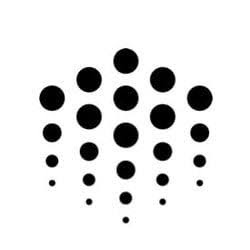Ocean Protocol (OCEAN)
What is Ocean Protocol (OCEAN)?
Ocean is an open-source protocol that aims to allow businesses and individuals to exchange and monetize data and data-based services.
Built on top of the Ethereum blockchain, the Ocean protocol uses ‘datatokens’ to gate access to data sets. The tokens are then redeemed by users who need access to the information.
Ocean is seeking to make the data sets on its platform available to startups and researchers, without the data having to leave the hands of those who store it.
Ocean’s software is built to facilitate this data exchange, linking users who need data or do not have resources to store it, with those who have resources to spare. In return for their work, providers are awarded OCEAN, Ocean’s native cryptocurrency.
The OCEAN token (sometimes referred to as OCEAN coin or OCEAN crypto) is designed to be multipurpose, and is used to validate the best datatokens and to allow users to both participate in governance and buy and sell data.
Further, Ocean enables marketplaces to implement its protocol to connect parties and facilitate transactions between them. For example, Ocean Market, created by the Ocean team, is a place where datatokens are publicly available for trade.
For more regular updates from the Ocean Protocol team, you can bookmark the Ocean Protocol Blog, which includes product details, new releases and project integrations.
Who created Ocean Protocol?
Ocean Protocol was founded in 2017 by Bruce Pon and AI researcher Trent McConaghy, who previously founded BigChainDB, a blockchain database software company.
The project is supported by the Ocean Protocol Foundation, a non-profit based in Singapore, and OceanDAO, a decentralized autonomous organization (DAO).
The Ocean Protocol Foundation raised a total of $26.8 million through several rounds of token offerings, releasing roughly 160 million OCEAN tokens.
How does Ocean Protocol work?
The Ocean Protocol uses custom programs called smart contracts to ensure each datatoken can be exchangeable across Ethereum’s blockchain and within its decentralized applications.
To make the system work, Ocean operates through three main components:
Providers – Mint datatokens and sell the right to access off-chain data sets
Consumers – Purchase datatokens and redeem access to datasets
Marketplaces – Connect providers and consumers and facilitate transactions
Ocean Market
The Ocean Market is an automated market maker (AMM) that was built to facilitate the minting and exchange of datatokens.
In contrast to traditional orderbook style trading that matches the ‘bids’ and ‘asks’ of participating parties, automated market makers use a collection of liquidity pools, similar to Uniswap and Balancer, that allow each trade to settle through a set of smart contracts.
When a provider seeks to mint and publish a datatoken, they specify several fields to inform consumers about their product, including a title, description, price, and a URL where the data can be found, which is then encrypted and stored on Ethereum.
Ultimately, when consumers decide to redeem a datatoken, the data is decrypted and subsequently downloadable directly from the wallet connected to the marketplace.
Compute-to-Data
Compute-to-Data is Ocean’s feature that allows data sharing while preserving user privacy.
Using this method, datatokens allow consumers to leverage certain portions of a dataset to run specific computing jobs, thus supporting the development of research or artificial intelligence, while keeping certain user information private.
Providers can therefore keep datasets on their own servers, and sell portions of it to specific parties, or for particular use cases.
Why does OCEAN have value?
Ocean Protocol’s cryptocurrency, OCEAN allows users to buy and sell datatokens, participate in governance, or stake in the Ocean Market.
OCEAN’s main use case is its ability to be the unit of exchange for datatokens. Of note, as a token that abides by Ethereum’s standards, OCEAN and datatokens are also transferable for other ERC-20 tokens such as ETH, DAI, and many others.
Users who stake OCEAN also help govern the protocol, voting on network upgrade proposals to determine which initiatives to push forward.
Given Ocean Market operates as a marketplace, OCEAN holders may also stake their tokens and provide liquidity to the marketplace. In return, these liquidity providers can earn a percentage of the transaction fees paid by traders that utilize liquidity pools.
Lastly, OCEAN is also critical to OceanDAO operations, as it grants owners the ability to vote on which proposals to fund and guide the future of the project.
Source : KRAKEN
Tags:
Cryptocurrency
